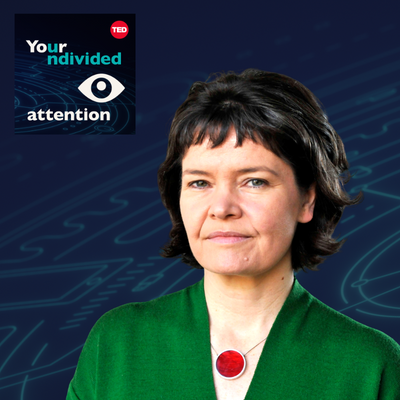Episode 54 | Jun 30, 2022
An Alternative to Silicon Valley Unicorns with Mara Zepeda & Kate “Sassy” Sassoon
Why isn't Twitter doing more to get bots off their platform? Why isn’t Uber taking better care of its drivers?
What if...they can't?
Venture-capital backed companies like Twitter and Uber are held accountable to maximizing returns to investors. If and when they become public companies, they become accountable to maximizing returns to shareholders. They’ve promised Wall Street outsized returns — which means Twitter can't lose bots if it would significantly lower their user count and in turn lower advertising revenue, and Uber can’t treat their drivers like employees if it competes with profits.
But what's the alternative? What might it look like to design an ownership and governance model that incentivizes a technology company to serve all of its stakeholders over the long term – and primarily, the stakeholders who create value?
This week on Your Undivided Attention, we're talking with two experts on creating the conditions for humane business, and in turn, for humane technology: Mara Zepeda and Kate “Sassy” Sassoon of Zebras Unite. Zebras Unite is a member-owned co-operative that’s creating the capital, culture, and community to power a more just and inclusive economy. The Zebras Unite Coop serves a community of over 6,000 members, in about 30 chapters, over 6 continents. Mara is their Managing Director, and Kate is their Director of Cooperative Membership.
Two corrections:
The episode says that the failure rate of startups is 99%. The actual rate is closer to 90%.
The episode says that in 2017, Twitter reported 350 million users on its platform. The actual number reported was 319 million users.
Major Takeaways
Venture capital is inherently high-risk, and therefore must maximize returns — in turn, driving growth at all cost. In a way, venture-backed companies 'can't afford' to build humane technology, if it would jeopardize growth.
Zebras Unite believes that in order to change corporate behavior, we must change who has power over the company. Power is encoded in ownership and governance, which are encoded in the business model. Hence the Zebras Unite tagline: the business model is the message. In other words, in order to change corporate behavior, we must change the business model to one in which power accrues to stakeholders — and in particular, to the stakeholders who create value.
Zebras Unite was founded to create an alternative to Silicon Valley unicorns. Unicorns are characterized by valuations of over a billion dollars, a laser focus on user acquisition, and business models that set up perverse incentives. On the other hand, zebras are characterized by mutualism, shared property, and business models that support multi-stakeholder value. For a comparison of unicorns and zebras in the same category, see the table below.
Zebras Unite distinguishes between defensive strategies, like regulation and ethics training for technologists, and offensive strategies, like building cooperative models of ownership and governance. Zebras Unite is therefore playing offense.
There are myriad, global examples of zebras. To name a few zebras:
~Start.Coop is the zebra version of Y Combinator
~Drivers Coop is the zebra version of Uber
~The Matriarch Fund lends based on the character of the entrepreneurs, in contrast to venture capital, which is based on projected revenue
~Hylo & Social Roots are two social media zebras, which build software for community organizing and collaboration
~Mondragon is perhaps the best-known global cooperative — it’s based in Spain, has over 80,000 employees, and includes organizations in four areas of activity: finance, industry, retail, and knowledge
In 2017, a group of collaborators including Nathan Schneider launched a campaign to #BuyTwitter. Although they didn't succeed, they managed to get the resolution raised at a Twitter shareholder meeting. Now that Elon Musk has made a bid for Twitter, the notion of #BuyTwitter is back — this time, with more cultural force.
According to Mara Zepeda and Kate Sassoon, there’s no need for zebras to out-compete unicorns, because unicorns are obsoleting themselves. Mara proposes understanding the transition from unicorns to zebras not as one of competition, but as one of hospicing the old and making room for the new — as articulated by Margaret Wheatley's two-loop theory of organizational transformation.
Zebras achieve scale not from one enormous entity, but from a million smaller-scale solutions. This is akin to how zebras protect themselves from lions — by banding together and thereby creating confusion. A group of zebras banding together is called a dazzle.
Other recommended reading
Zebras Fix What Unicorns Break
A seminal 2017 article by Zebras Unite co-founders, which kicked off the movement and distinguished between zebras and unicorns — per the table below.
Meetup to the People
Zebras Unite’s 2019 thought experiment of exiting Meetup to community
Zebras Unite Crowdcast Channel
Where you can find upcoming online events, as well as recordings of previous events.


